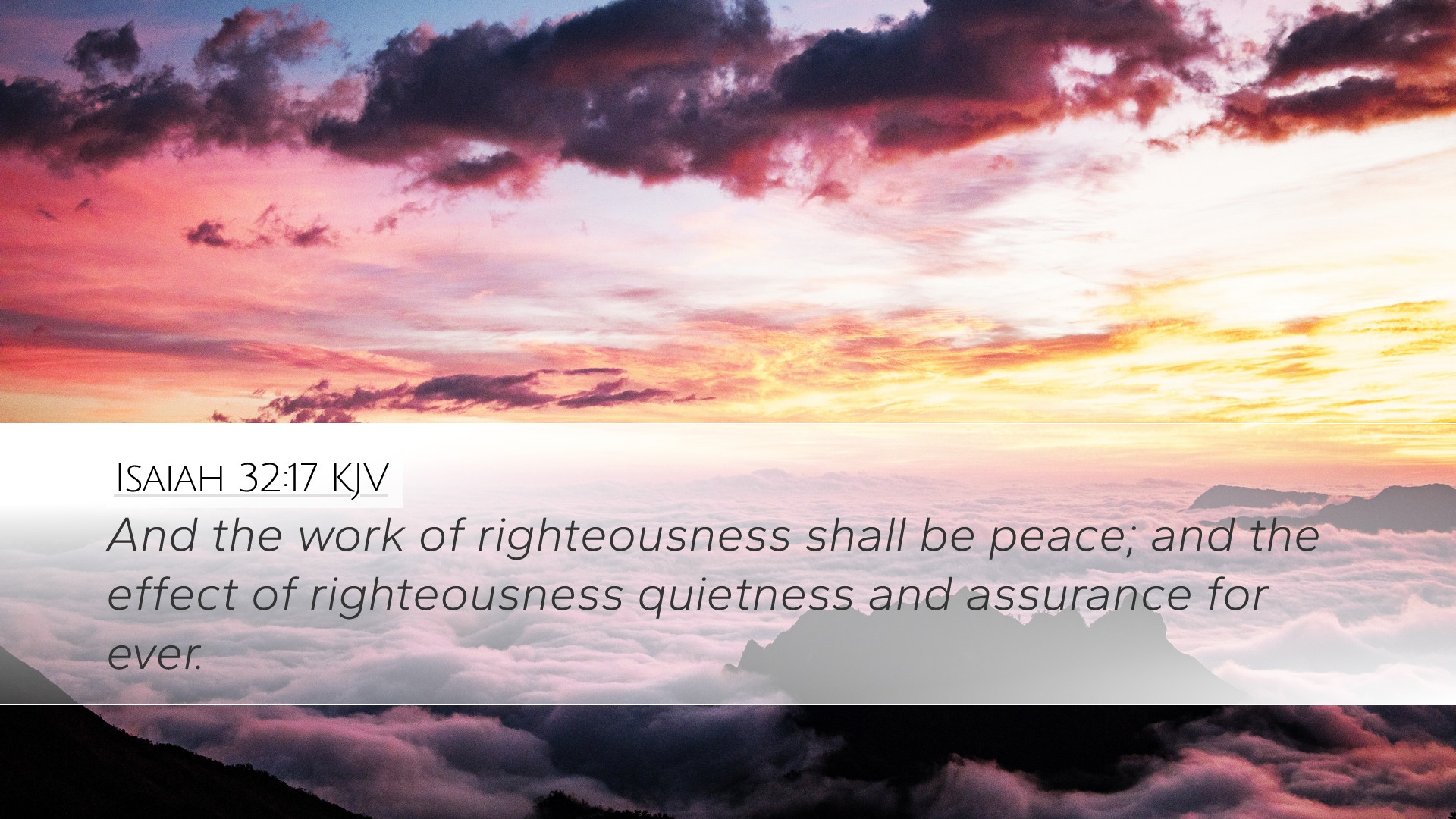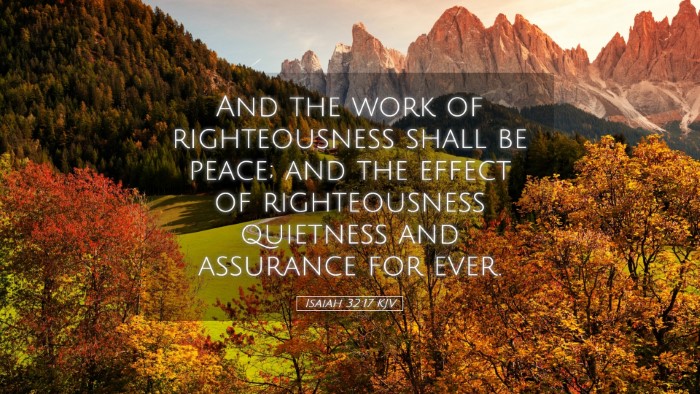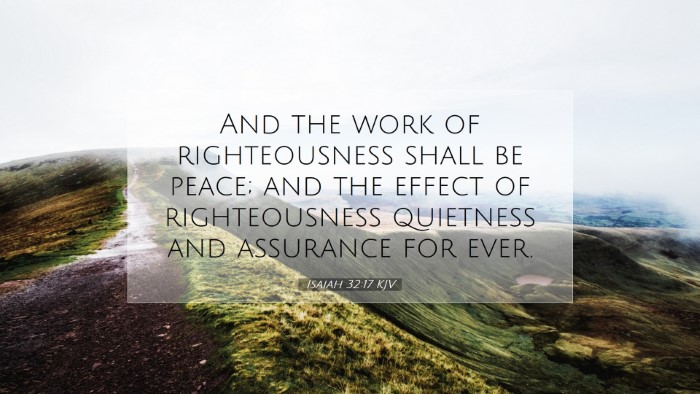Commentary on Isaiah 32:17
Text of Isaiah 32:17: "And the work of righteousness shall be peace; and the effect of righteousness quietness and assurance forever."
Introduction
The Prophet Isaiah speaks a profound truth regarding the outcomes of righteousness. In a world often fraught with unrest, Isaiah reveals that true peace emerges from the pursuit of righteousness. This commentary aims to explore the implications and applications of Isaiah 32:17, drawing insights from the public domain commentaries of Matthew Henry, Albert Barnes, and Adam Clarke.
Understanding Righteousness
Righteousness Defined: Righteousness in the biblical context refers to living in accordance with God's standards. It encompasses moral integrity, justice, and faithfulness.
- Matthew Henry's Insight: Henry emphasizes that righteousness is not merely an internal state but a lived experience that produces visible fruits—primarily peace.
- Albert Barnes' Perspective: Barnes notes that righteousness is rooted in God’s law and produces an outward peace that corresponds with inner tranquility.
- Adam Clarke's Commentary: Clarke argues that righteousness is aligned with God's character and fosters a lasting sense of security and confidence in the believer.
The Work of Righteousness
The phrase "the work of righteousness" suggests that righteousness is active. It is not passive, but involves a commitment to God’s ways.
- Meaning of Work: Each act of righteousness serves as a stepping stone toward ultimate peace. It indicates diligence in pursuing righteousness.
- Application: Pastors and theologians are encouraged to preach not just the importance of faith but the active engagement in righteousness as a demonstration of faith.
Peace as the Outcome
The verse indicates that peace is a direct result of righteousness. This peace is twofold—spiritual and communal.
- Inner Peace: Clarke emphasizes that this peace is primarily internal, stemming from a right relationship with God.
- Community Peace: Henry points out that when individuals pursue righteousness, social harmony follows, as righteous people will contribute positively to societal wellbeing.
In the context of pastoral ministry, this underscores the need for church communities to prioritize righteousness both individually and corporately.
Quietness and Assurance
The latter part of the verse speaks to "quietness and assurance forever." This indicates a permanence of the peace and security that righteousness brings.
- Quietness: Barnes highlights that this quietness refers not only to silence but to a deeper sense of stillness within—a cessation of turmoil.
- Assurance: Clarke connects assurance with a steadfast trust in God, suggesting that it comes from knowing one's standing with God is secure.
For students and scholars, this assurance is a rich area for further exploration as it relates to faith, spirituality, and mental health.
Implications for Today
The message of Isaiah 32:17 is profoundly relevant today. In an era characterized by conflict and anxiety, the call to righteousness offers a pathway to peace.
- Call to Action: Ministers should encourage congregants to embody righteousness in their daily lives, highlighting that this is a collective endeavor.
- Scholarship and Discipleship: Theologians and students should study the implications of righteousness for personal peace and societal transformation.
Ultimately, the work of righteousness extends beyond individual spirituality to impact communities, nations, and the world.
Conclusion
Isaiah 32:17 beautifully encapsulates the relationship between righteousness and peace—a truth that transcends time and context. As believers actively pursue righteousness, they may experience profound peace that guards hearts and minds, inspiring assurance that is everlasting.
In summary, may the insights from this commentary empower pastors, students, and scholars to articulate the importance of righteousness in the journey toward experiencing deep, abiding peace.


